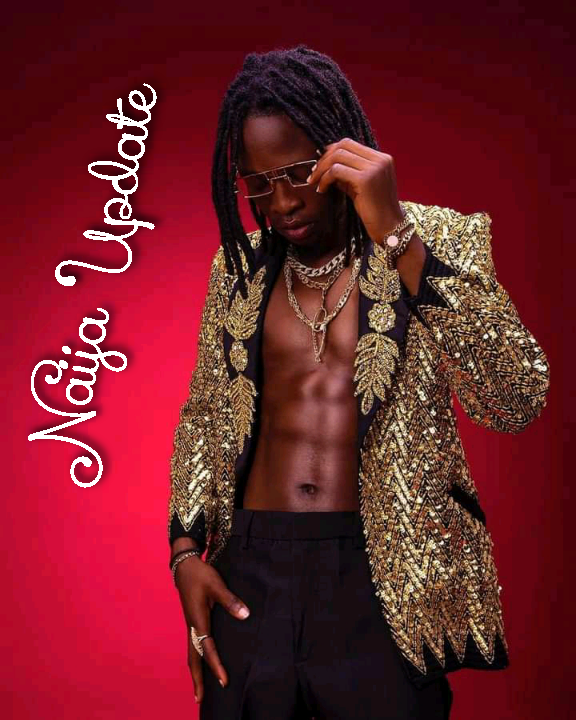Meet Wizkid, Nigeria’s Best-Dressed Pop Star
Wizkid is pretty much the biggest thing in
Nigerian pop, which itself seems to advance on the global music stage
almost as quickly as the country’s economy, one of the fastest growing
in the world. He scored a massive smash last year with “Ojuelegba,” an
insatiable rags-to-riches hit with a shoulder-shrugging Afrobeat, which
inspired Drake to jump on a remix (the two linked up after expressing
mutual admiration over Instagram). “Ojuelegba” is prime and perfect
Afropop, characterized by a shuffling, whistling charisma, an elegant
rhythm, and a message of positivity and parties. It is distinctly
Nigerian, yes, but also—in the way that all songs that worm their way
around the world are—an inspirational anthem for many.![]()
![]()
![]()
![]()
![]()
![]()
![]()

I design everything myself, and I get them to make it. I do a little sketch; sometimes I just sit down with a tailor and describe what I want. Sometimes we go back and forth, like, for days, trying to get it right. Sometimes it’ll take a day to make it, sometimes three, four days. I have a lot of tailors. If I want something made in 12 hours, it will be made in 12 hours.
Wizkid,
who at 25 years old already adorns Pepsi ads in his native country, has
become almost as known for his trendsetting style as his sound, and his
is a thoughtful and fun approach to wardrobe: clean lines and
minimalism; a mix of fresh streetwear with traditional Nigerian clothes;
and bold, bright accessories. When we Skype, he has paired a tunic
tailored in his hometown of Lagos with a loose sweatshirt and big, bulky
sneakers, an outfit that epitomizes his blend of the local and
universal. In Lagos, he is so famous he can hardly walk around without
being mobbed by fans, but in London, where he is currently finishing an
EP, he enjoys the relative anonymity the city affords him, particularly
because it allows him to partake in one of his favorite hobbies:
shopping. Here, we discuss style with one of Africa’s biggest stars.
First thing I notice is you’re wearing Bape—are you a big streetwear-head?
Yeah, I like me some Bape, you know. But I wear anything to be honest. Adyn, Rick Owens, Givenchy, anything. I shop from everywhere. We’re talking with BBC to make clothes for my tour.
Yeah, I like me some Bape, you know. But I wear anything to be honest. Adyn, Rick Owens, Givenchy, anything. I shop from everywhere. We’re talking with BBC to make clothes for my tour.
What’s the shopping like in Lagos?
I have local tailors out there who make me traditional stuff. So I get material from Lagos, and I have them make me pieces. I mix them up with whatever I wear. I have a whole lot of tailors. The fabrics are from different parts of Nigeria. We have the tie and dye from the western part of Nigeria. We get stuff from the north. I mix it up.
I have local tailors out there who make me traditional stuff. So I get material from Lagos, and I have them make me pieces. I mix them up with whatever I wear. I have a whole lot of tailors. The fabrics are from different parts of Nigeria. We have the tie and dye from the western part of Nigeria. We get stuff from the north. I mix it up.
Do you wear a lot of traditional Nigerian clothes?
When I’m back home, all I wear is African fabric. All I really rock is the traditional stuff. That’s the in thing right now. That’s really coming back. Back in the day, our parents used to wear it every day, and they still do, but now it’s cool for wee young ones to wear it. It’s amazing. We’re doing it differently. We’re having it a little bit more fitted. We have styles on it, embroideries and stuff, by local people, made by hand, designed on it.
When I’m back home, all I wear is African fabric. All I really rock is the traditional stuff. That’s the in thing right now. That’s really coming back. Back in the day, our parents used to wear it every day, and they still do, but now it’s cool for wee young ones to wear it. It’s amazing. We’re doing it differently. We’re having it a little bit more fitted. We have styles on it, embroideries and stuff, by local people, made by hand, designed on it.
How would you describe Lagos style?
Lagos
style is fresh and different. Even with the tailors, they get very
innovative with their stuff, with the cuts. When my parents used to make
the traditional wares, it was a little bit baggy. But now the tailors
are able to infuse the European style, making it slim-fit. Lagos style
is different, man. Innovative.
And tailors are everything in Nigeria.
One hundred percent. The clothes I make back home are
proper—properly fitted. Proper, proper. Tailors are A1 back home.
What’s your process when you get something made for you?One hundred percent. The clothes I make back home are
proper—properly fitted. Proper, proper. Tailors are A1 back home.
I design everything myself, and I get them to make it. I do a little sketch; sometimes I just sit down with a tailor and describe what I want. Sometimes we go back and forth, like, for days, trying to get it right. Sometimes it’ll take a day to make it, sometimes three, four days. I have a lot of tailors. If I want something made in 12 hours, it will be made in 12 hours.


Comments